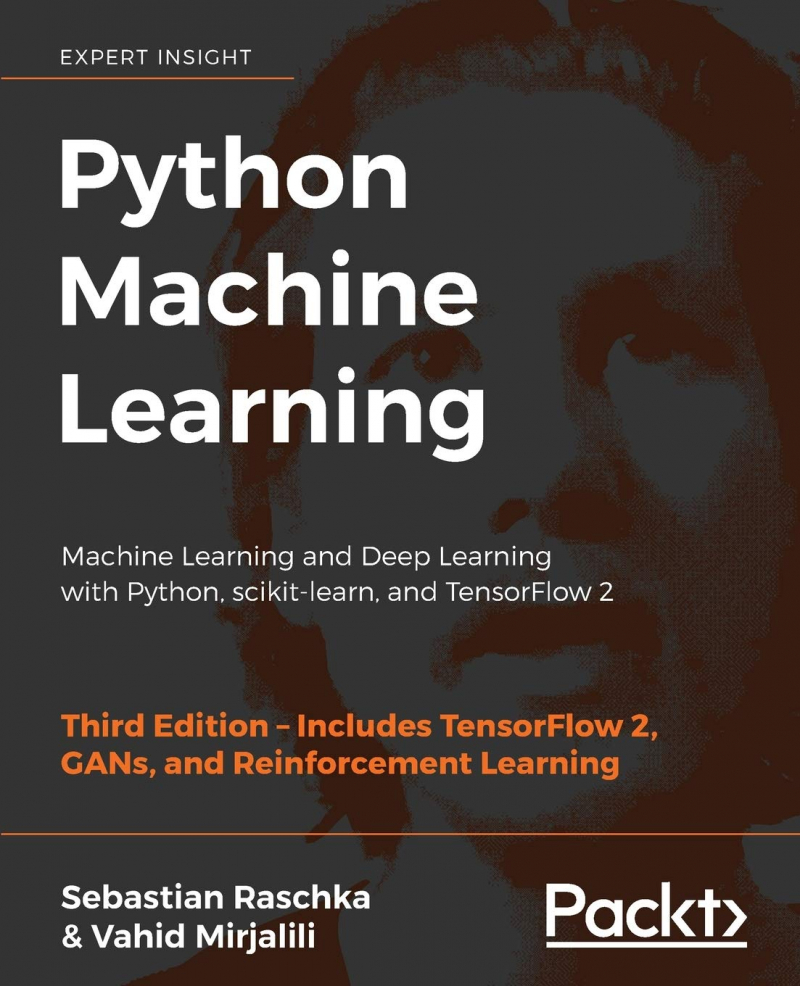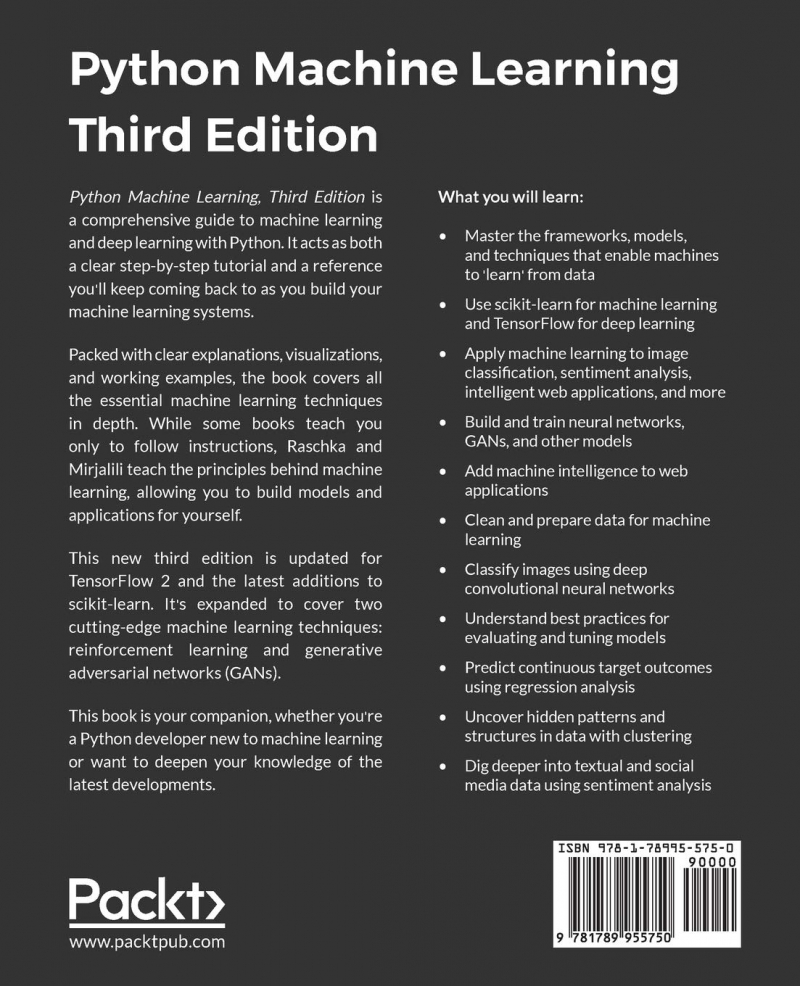Python Machine Learning
Sebastian Raschka is an Assistant Professor of Statistics at the University of Wisconsin-Madison, where he studies machine learning and deep learning. Vahid Mirjalili earned a Ph.D. in mechanical engineering while researching unique methodologies for large-scale computational simulations of molecular structures.
Python Machine Learning, Third Edition offers an in-depth look at machine learning and deep learning in Python. It serves as both a step-by-step instruction and a reference that you will return to as you create your machine learning systems.
The book covers all of the essential machine learning techniques in full, with clear explanations, graphics, and working examples. While some publications merely teach you to follow instructions, Raschka and Mirjalili teach you the foundations of machine learning, allowing you to construct models and applications for yourself.
This new third edition, updated for TensorFlow 2.0, introduces readers to the new Keras API capabilities as well as the latest scikit-learn enhancements. It has also been expanded to include cutting-edge deep learning-based reinforcement learning approaches, as well as an introduction to GANs. Finally, this book delves into sentiment analysis, a subfield of natural language processing (NLP) that teaches you how to classify materials using machine learning methods.
This book is your machine learning buddy, whether you're a Python developer new to machine learning or want to brush up on the latest breakthroughs. It is regarded as one of the best books on computer neural networks.
What you will discover:
- Understand the frameworks, models, and approaches that allow machines to 'learn' from data.
- For machine learning, use scikit-learn, and for deep learning, use TensorFlow.
- Machine learning can be used for picture categorization, sentiment analysis, intelligent online applications, and other tasks.
- Create and hone neural networks, GANs, and other models.
- Learn about the best procedures for reviewing and tuning models.
- Using regression analysis, predict continuous target outcomes.
- Using sentiment analysis, delve deeper into textual and social media data.
Pick up this book if you know Python and wish to apply machine learning and deep learning. This is a vital resource whether you want to start from scratch or expand your machine learning knowledge. This book is suitable for anyone who wants to teach computers how to learn from data and is written for developers and data scientists who want to produce real machine learning and deep learning programs.
Author: Sebastian Raschka and Vahid Mirjalili
Link to buy: https://www.amazon.com/Python-Machine-Learning-scikit-learn-TensorFlow/dp/1789955750/
Ratings: 4.5 out of 5 stars (from 375 reviews)
Best Sellers Rank: #83,573 in Books
#13 in Natural Language Processing (Books)
#16 in Computer Neural Networks
#85 in Python Programming














